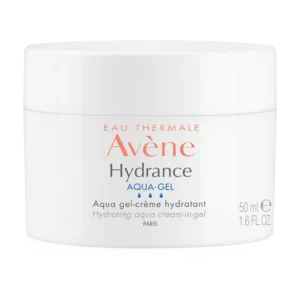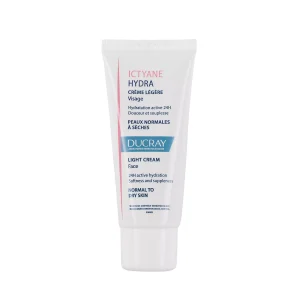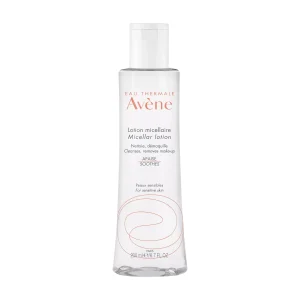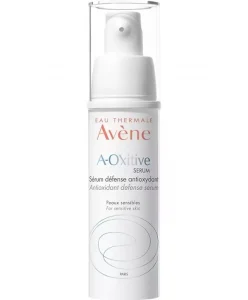
Wrinkles, silent storytellers of your journey, have given rise to a world of myths that often confuse your understanding of what it means to age gracefully. From mystical remedies to urban legends, these misconceptions have created a sea of confusion around the quest for youthful skin.
Read this article, written in collaboration with the dermatologist Dr. Siba Faraj, to unravel the riddle of common wrinkle myths, separate fact from fiction and guide you towards a clearer path to radiant, ageless beauty.
What are the most common wrinkle myths?
Dr. Siba Faraj discusses some of the most common misconceptions and sheds light on the actual facts.
- Myth: Wrinkles are caused solely by aging.
Reality: Although aging is one of the leading causes of wrinkles, other factors are also involved. Exposure to UV rays, smoking, poor skin care, and even genetics can accelerate the formation of wrinkles.
- Myth: Only older people get wrinkles.
Reality: Wrinkles can appear at any age. Early wrinkles can be caused by sun exposure, stress, and lifestyle choices. Genetics also influence when and how wrinkles appear.
- Myth: Tanning helps hide wrinkles.
Reality: Tanning actually accelerates skin aging due to the harmful effects of UV rays. It damages collagen and elastin fibers, leading to the premature appearance of wrinkles and sagging skin.
- Myth: Expensive products are always better.
Reality: Price is not always synonymous with effectiveness. The quality of ingredients and formulation is more important than price. Look for products containing retinoids, hyaluronic acid, and antioxidants.
- Myth: Moisturizers can eliminate wrinkles.
Reality: Moisturizers hydrate and plump your skin temporarily, reducing the appearance of fine lines. However, they don’t erase wrinkles; for that, you may need treatments like retinoids, fillers, or laser therapy.
- Myth: Topical collagen creams are effective.
Reality: Collagen molecules are too large to penetrate your skin effectively. Although these creams can provide temporary hydration, their impact on collagen production is minimal.
- Myth: Surgery is the only solution.
Reality: Surgical options such as facelifts can deliver dramatic results, but non-surgical treatments such as Botox, dermal fillers, and laser therapies offer effective alternatives with less downtime.
- Myth: Drinking more water prevents wrinkles.
Reality: Staying hydrated is vital for overall health, but drinking water does not directly prevent wrinkles. Wrinkles are influenced by factors such as genetics, sun protection, and skin care routine.
- Myth: Wrinkles are irreversible.
Reality: While it’s impossible to completely eliminate wrinkles, their appearance can be minimized and managed through proper skin care, a healthy lifestyle, and various dermatological treatments.
Tackling these myths provides a better understanding of the complex processes involved in skin aging and wrinkle formation.
How can wrinkles be treated?
Treating wrinkles involves a combination of preventative measures, lifestyle changes, skin care routines, and, in some cases, professional treatments. Here are different approaches you can consider:
- Sun protection:
According to Dr. Siba Faraj, sun exposure is perhaps one of the most important external factors in the wrinkle equation. The sun’s UV rays accelerate skin aging by damaging collagen and elastin fibers. Diligent sun protection, including the use of sunscreen, wearing protective clothing, and seeking shade, can significantly delay the appearance of wrinkles.
Our choice of sunscreen:
Eau Thermale Avène Very High Protection Fluid SPF 50+
- Skin care routine:
Dr. Siba Faraj states that a consistent and effective skincare routine can help fight the first signs of aging, including wrinkles. Products containing retinoids, antioxidants, and hyaluronic acid can promote collagen production, fight free radicals, and maintain skin hydration.
- Moisturization:
Well-moisturized skin looks plumper and can help reduce the appearance of wrinkles. Use a moisturizing product suited to your skin type to keep your skin hydrated.
Our choice of moisturizers:
Eau Thermale Avène Hydrance Aqua-Gel
Ducray Ictyane Hydra Light Cream
- Hydration and nutrition:
Dr. Siba Faraj notes that adequate hydration and a nutrient-rich diet play an essential role in maintaining skin elasticity and suppleness. Drinking enough water and consuming foods rich in omega-3 fatty acids, vitamins C and E and antioxidants can contribute to skin health.
- Healthy lifestyle:
Avoid smoking, which can contribute to premature aging and skin damage. Get enough sleep to promote skin cell repair and regeneration.
- Avoid harsh cleansers:
Using harsh cleansers can strip your skin of its natural oils and compromise its barrier function. Opt for gentle, pH-balanced cleansers that clean without irritating.
Our choice of cleanser :
Eau Thermale Avène Micellar Lotion
- Topical treatments:
Over-the-counter creams and serums containing retinoids, hyaluronic acid, peptides, and antioxidants can help improve the appearance of wrinkles over time. These products stimulate collagen production and hydrate the skin. Consulting a dermatologist can help you determine which treatments are best suited to your skin.
Our choice of serum :
Eau Thermale Avène A-Oxitive Antioxidant Defense Serum
- Professional treatments:
If you want more visible results, consider professional treatments performed by dermatologists or licensed estheticians. These may include:
- Chemical peel: Removal of the top layer of skin to stimulate collagen production and reveal smoother skin.
- Microdermabrasion: Exfoliation of the outer layer of skin to improve texture and reduce fine lines.
- Laser therapy: Fractional laser treatments can stimulate collagen production and resurface the skin.
- Dermal fillers: Injectable treatments such as hyaluronic acid fillers can temporarily smooth wrinkles and restore volume.
- Botox and Dysport: Neuromodulators that temporarily relax muscles to reduce the appearance of expression lines.
- Microneedling:
Minimally invasive treatment that uses fine needles to create micro-lesions in the skin, promoting collagen and elastin production.
- Mindful living:
Dr. Siba Faraj indicates that chronic stress can contribute to premature aging, including the development of wrinkles. Practicing stress-reduction techniques such as mindfulness, meditation, and adequate sleep can have a positive impact on skin health.
- Adopt a consistent routine:
Results take time. Dr. Siba Faraj explains that achieving noticeable results with skin care products requires consistency and patience. Visible improvements often take time to appear, and diligent application is essential to maximize benefits.
Conclusion
As we bid farewell to the era of common wrinkle myths, we embrace a new understanding of our skin’s journey through time. This journey reminds us that while wrinkles are part of life’s natural narrative, knowledge allows us to navigate with grace. Armed with the wisdom of debunked myths, we can embark on the path of informed choice, caring for our skin and embracing the stories engraved in every line.
Last Updated on February 16, 2024













